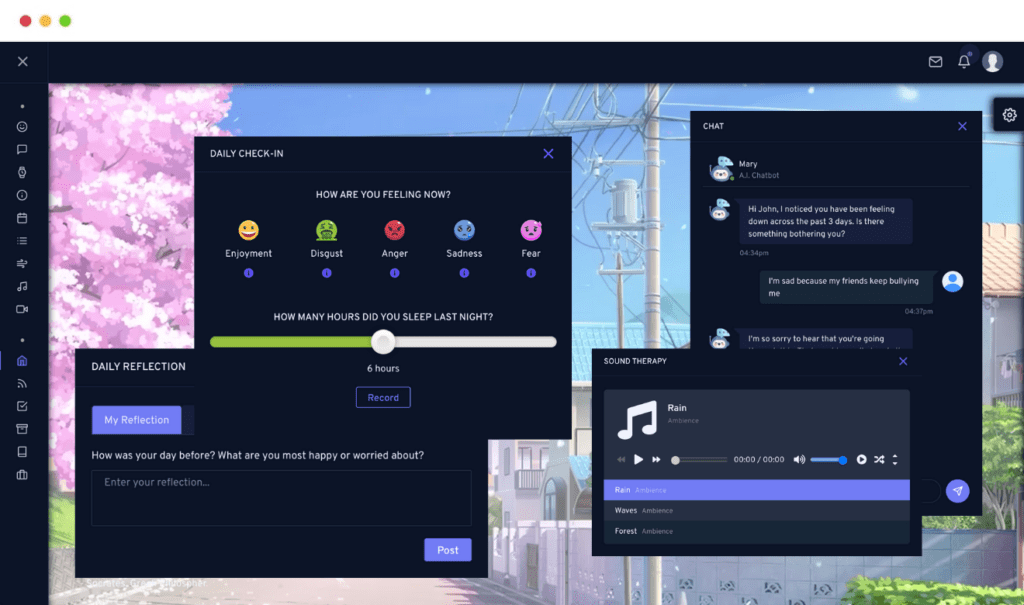Importance of Holistic Development in Education

“Education is the passport to the future, for tomorrow belongs to those who prepare for it today.” – Malcolm X
In today’s day and age, we all know that a good education is the gateway to a better future.
Traditionally, the focus on education has predominantly been centred around academic achievements and grades. While academic success is undoubtedly crucial, there is growing recognition that a well-rounded education goes beyond mere test scores. Holistic development, encompassing the physical, mental, emotional, and social aspects of a student’s life, is now being emphasised as an essential component of education. In this article, we explore the significance of holistic development in schools and highlight the benefits it offers to students.
The Importance of Holistic Development
According to the Singapore’s Ministry of Education (MOE), holistic development is defined as taking into account the whole child and emphasises the importance of their physical, social, emotional, cognitive, moral, creative and aesthetic abilities. Every aspect of a child’s development should be recognised and valued in order to maximise the potential of the child.
Holistic development is also an approach that acknowledges the interconnectedness of various aspects of an individual’s life. It recognises that education should not solely focus on intellectual growth but should also encompass physical fitness, emotional intelligence, social skills, and ethical values. By adopting a holistic approach, schools can create an environment that encourages students to thrive in all areas of their lives.
Nurture: Award-winning student wellness & holistic development platform for K-12 schools

Different Aspects of Holistic Development
Social development focuses on a person’s ability to interact and communicate effectively with others. It involves developing social skills, empathy, teamwork, and building healthy relationships. Social development also encompasses understanding and respecting diverse perspectives, cultures, and fostering a sense of community. Within Nurture, teachers can leverage on our social network analysis (SNA) module to deep dive into the social dynamics within the classroom and identify any outliers, cliques, influencers and more.
Emotional development involves recognising and managing one’s own emotions, as well as understanding and empathising with the emotions of others. It encompasses developing self-awareness, emotional intelligence, resilience, and coping mechanisms. Emotional development helps individuals navigate their feelings, handle stress, and maintain positive mental well-being. Within Nurture, students can easily perform their well-being check-ins and spot patterns within their personalised dashboard to develop better self-regulation of their own emotions. Using sound therapy and deep breathing exercises, they are able to better manage their stress levels for a calmer and clearer mind.
Cognitive development refers to the growth of intellectual abilities and thinking processes. It includes skills such as critical thinking, problem-solving, logical reasoning, memory, creativity, and information processing. Cognitive development fosters self-directed learning, curiosity and a thirst for knowledge, as well as the ability to learn and adapt to new situations. To promote self-directed learning, students can easily enrol into school-related programs in our marketplace. Thereafter, they can complete any tasks, submit any self-assessments, reflections, or artefacts while completion badges, skills, achievements and participations will all be collated within their student e-portfolio. In terms of time-management, students can easily consolidate all their tasks, goals and stay focused using a pomodoro timer.
Physical development involves the growth and coordination of the body, as well as promoting a healthy lifestyle. It includes physical fitness, nutrition, and overall well-being. Physical development encourages regular exercise, proper nutrition, and self-care, which contribute to a person’s overall health and vitality. When students’ physical health is prioritised, through physical education classes, sports activities, and access to nutritious meals, they are better equipped to concentrate, participate actively, and succeed academically. In order to motivate students to lead a healthier lifestyle, they can track their current physical and health indicators within Nurture.Physical well-being check-ins include their BMI, sleep, hydration, physical activity levels and more – serving as a useful tool for them to increase their self-awareness.
Creative development nurtures individuals’ ability to think imaginatively, express themselves, and explore various forms of artistic expression. Inside Nurture, students are able to customise their own learning space, choose between dark mode or light mode, and select from a large library of video background templates that they prefer. On their home screen, they can also customise their own space using their imagination to encourage them to think outside the box, embrace their unique talents, and appreciate different forms of creativity.
By addressing and fostering these five aspects of holistic development, students can experience comprehensive growth. In addition, by empowering teachers with the tools and insights they need to effectively understand their students, educators can effectively monitor and support their students’ well-being and integrate holistic development into the classroom.
Conclusion
Embracing holistic development in schools yields numerous benefits for students. Firstly, it enhances their overall academic performance. When students’ physical and emotional needs are met, they are better able to focus, retain information, and apply critical thinking skills. Improved mental well-being also leads to decreased absenteeism, fewer behavioural issues.
Furthermore, by allowing each student to identify and build upon their unique strengths, they are encouraged to follow and pursue their many interests, whether they are in the arts, athletics, or academic professions. This would allow students to be able to take more control of their education, grow in confidence, and develop a clearer sense of purpose.
References:
Singapore Ministry of Education (MOE): https://www.moe.gov.sg/education-in-sg/our-students



